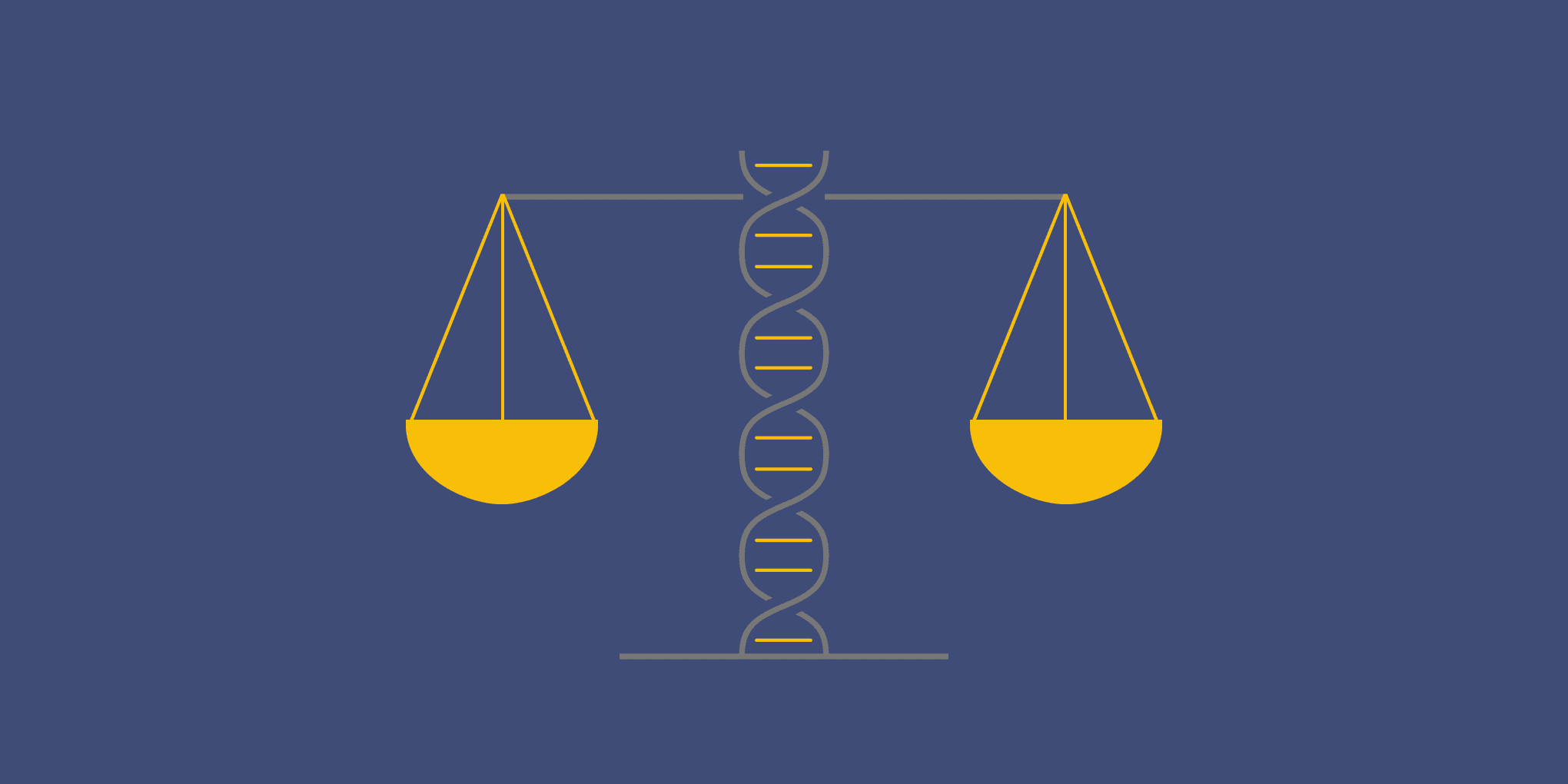Why bioethics matters to us—and why it should matter to you

Genetic tests and products can tell you a lot about yourself. With them, you can see how your ancestry (as recorded in your DNA) differs from that of your siblings. You can use them to learn whether you’re likely to metabolize caffeine faster or slower. You can even use them to help with New Year’s resolutions. But what should genetic tests tell you—and what shouldn’t they tell you?
Every day here at Helix, we take these fundamental questions seriously. After all, our mission is to empower every person to improve their life through DNA. We believe in a world where every person benefits from their biological information and is able to help all of humanity lead better lives. To make this mission a reality, we need to not only find ways to push personal genetics forward; we need to find responsible ways to push our industry forward.
To determine what those responsible paths are, we turn to bioethics.
What is bioethics?
Ethics is a kind of philosophy that deals with morality—what is right and what is wrong. It goes beyond the individual moral compass of one person (their individual ethic) and tries to settle on what “right” and “wrong” mean more broadly. As a subtype of ethics, bioethics focuses on the moral questions that come up in biological sciences, like genetics.
In the US, modern bioethics got its start with medicine and medical research. The culture of those fields had long favored the needs of doctors over those of their patients, and the needs of researchers over those of their participants. Doing so set the stage for for serious atrocities to take place, like the Tuskegee syphilis experiment. Bioethics started emerging in the late 1960s and early 1970s as a way to push back, change the culture of medicine, and prevent future atrocities.
Since then, bioethics has expanded to cover the ethical questions that genetics has faced—and will continue to face as the field develops. For instance, when science doesn’t yet know what a genetic variant does, how should a genetic test deal with it? Or, if a test is looking for one result (like the cause of a rare disease) and finds another (like an increased risk for breast cancer), what should the person getting the test find out? Answering these questions requires going beyond just what the pure science of genetics can tell us; it requires us to consider what makes the practice of genetics responsible.
Generally speaking, bioethics helps determine what is responsible by considering four key principles: autonomy, beneficence, nonmaleficence, and justice. The principle of autonomy is about respecting people and their free will. Beneficence and nonmaleficence are two sides of the same coin: doing what is helpful, and not doing what is harmful. Justice, in this context, has to do with being fair in giving out both benefits and risks.
How these principles relate to one another varies with each circumstance. In some cases, one principle may be the most important. Even so, none of these principles are meant to automatically take precedence over another.
Bioethics and Helix
How does consent fit in with bioethics? Informed consent is a key part of autonomy. Your informed consent is typically sought through the process of reviewing consent documents. These documents give you information about the risks, benefits, and limitations of what you would agree to.
Our Platform Consent covers this information about our sequencing and storage of your genetic information. Each product’s Product Consent will cover this information for the analysis of your genetics for specific insights.
Read more here and here.
From the very beginning, Helix has considered each of these principles in everything we do to help you learn about your DNA. Our entire “sequence once, query often” approach to personal genetics is based on a respect for your autonomy: We believe that you should choose what you want to learn about your own DNA—and what you don’t want to learn about. Getting results for everything in your Exome+ all at once isn’t for everyone. But, getting results for something in your Exome+ today (or in the near future) may be for you.
As we continue to add new partnerships and expand the Helix Store, we’re continuing to apply these bioethical principles. For instance, nonmaleficence is a key priority for us in how we evaluate new products (to help them avoid causing you any harm). We also require that all products in our Store have a Product Consent that details their risks, benefits, and limitations. But just as important as having that information is presenting it in a way that you can understand. We work with the makers of each product in the Helix Store to make sure what is conveyed in the consents is clear and understandable.
Bioethics and you
Helix’s mission is to empower you to make the most of your genetic information by helping you learn about yourself and your DNA. There are many great ways for us to make that mission a reality, and it starts by offering a marketplace full of high quality products—along with the necessary support to help you process the information that those products can give you.
By buying or using a product from the Helix Store, you get to think about the same bioethical questions we do—just on a more personal scale. What is right for you? What isn’t right for you? Ultimately, it’s up to you. But at every step of the way, Helix is here to help.